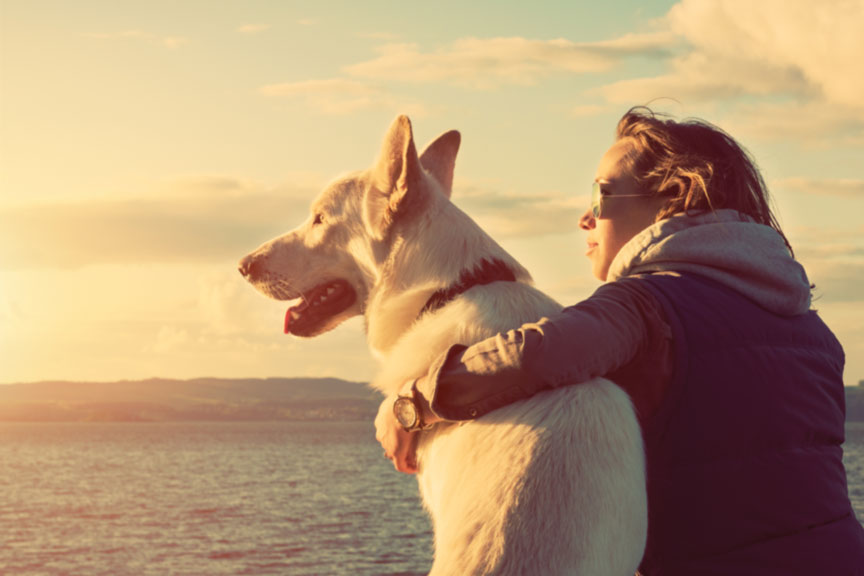Every month, we discuss legal issues surrounding current affairs and lifestyle topics that affect our community, friends and family. But what about our furry friends? They, too, are part of our families, are they not? Of course they are, but the law doesn’t truly treat them as such. The law, in fact, is fairly antiquated, and in most circumstances a companion pet will be considered “personal property” or a “chattel” with its value being only what you paid for the animal.
How can this be? We now live in a world that has evolved to fully embrace the emotional attachment we establish with our beloved pets, yet theft or loss of a pet only results in an award in the amount of, let’s say, your adoption fee from the shelter? What about the owner’s pain and suffering in a case of gross negligence by a groomer, police officer, neighbor or veterinarian?
Unfortunately, the various districts in Florida have differing views on whether or not a plaintiff may be compensated for negligent infliction of emotional distress caused by the untimely loss of a pet. Some districts apply the “impact rule,” which essentially requires that a plaintiff must demonstrate that the emotional distress suffered resulted from some form of physical impact with the plaintiff during the incident. There is an exception to this rule is if psychological trauma or mental distress becomes an actual physical manifestation as a result of the incident, which triggered such trauma or distress, or if psychological trauma or mental distress results from directly seeing or perceiving a close family member injured or killed due to someone’s negligence. The problem here is that the law does not consider pets to be part of our family. Other districts have allowed for recovery of damages for emotional distress without having applied the “impact rule,” and this seems to be the trend. Increasingly juries are awarding (and judges are affirming these awards) substantial damages to pet owners for the loss of pets, and recognizing that animals have much more value than the adoption fee paid to the shelter. A majority of these healthy awards have been for the unreasonable and unfortunate shooting of companion dogs by police officers. While police officers undoubtedly have a duty to protect themselves from attack, often times the trigger is pulled before an officer can make a determination that the dog was just being friendly.
We can at least be thankful that the courts are heading in the right direction. As awful as it may be to think about these things, when visiting your vet, always read the waivers carefully, ask questions and make sure you know who is going to be administering treatments, medications and surgical procedures on your animal. Find out who will be caring for your pet if he or she is staying overnight for treatment, grooming or boarding. Oftentimes veterinarian practices allow interns or non-licensed veterinarians to perform procedures that they may not be entirely familiar with, and you may be able to request your animal be cared for by a specific individual. The standards of care are not scrutinized in veterinarian medicine as they would be with humans in a hospital.
Animal law has been slowly evolving and lawyers are happy to take on a variety of different animal related cases. According to the Florida Bar Animal Law Committee, a body of law exists which consists of statutes, rules and case law relating to companion animals, animals used for food, animals used in research and entertainment, and wildlife, domestic relations, landlord/tenant, condominium associations, international and historic animal protection laws, animal cruelty, pet trusts, entertainment and sports law, equine law, agricultural law, health law, and criminal law, among others. Society is more “pro-animal” than ever before, but remember, it is truly up to you at the owner to ensure your furry friend lives the safest, happiest and healthiest life possible. And in the words of Bob Barker, “Help control the pet population. Have your pets spayed or neutered!”







